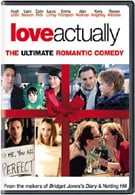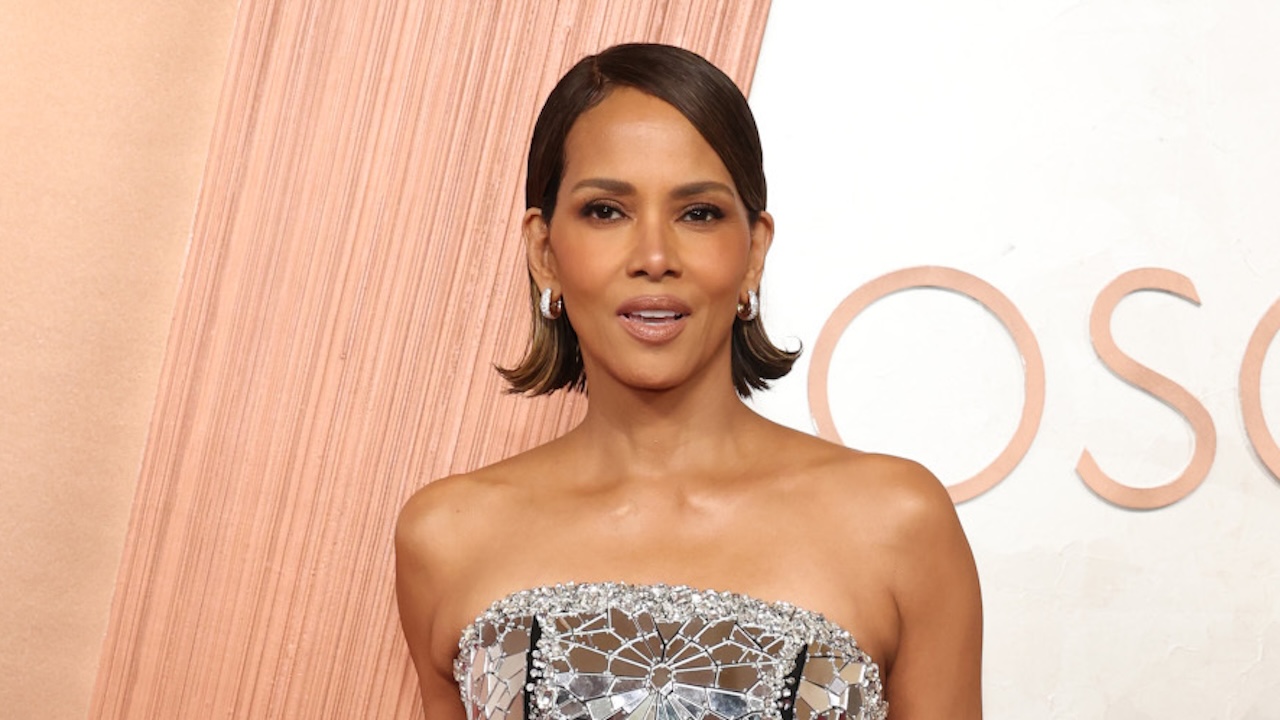The premise of romance in a British comedy is nothing new. It’s almost a requirement that British comedies have to be about romance and star Hugh Grant. In that regard Love Actually is no different from other British Rom Coms. However, that is also where similarities end between Love Actually and those other movies. Let me preface this now and get rid of any notions of manhood pretenses. This movie made me cry - cry like a little girl who fell down and not only skinned her leg, but broke the whole darn thing off. From the opening moment of the film, it is a mawkish tribute to love and romance that will knock down those man-built emotional walls and leave anyone wailing at some point or another. In fact, I dare anyone to see this movie and not be affected by it.
See, Love Actually is not just a romance story. It’s actually eight romance stories, plus a few minor tales tossed in there for good measure. Just about every kind of love is covered somewhere in the film, from the broken hearted to the newly married, unrequited love, awkward love, and even the love of two people bored out of their minds with each other and ready to possibly move on to an extramarital affair. Everything is covered, and anyone who has ever been in love is going to find someone in the movie they identify with, even if just for a second. And when that second happens, BAM! There come the tears.
The performances in Love Actually are exactly what you’d expect when you take just about every notable British actor and place them in the same picture. Emma Thompson, Alan Rickman, Bill Nighy, Hugh Grant, Liam Neeson, Colin Firth, Laura Linney, and even Billy Bob Thorton are among the notable cast who remind us the joy and pain of being in love. Almost as important as the cast are the musical selections of the film. Writer/Director Richard Curtis pulls out all the stops with the music, from obscure to cliche. Just as with the storylines, I dare someone to go through the movie without one of the pieces of music reminding them of a feeling or a moment somewhere.
At times the story can be a little predicatable, although primarily because the stories in Love Actually remind us of stories we’ve seen before, or even stories of our own lives. And although not all the characters recieve a happy ending, there are enough happy moments to remind everyone that love actually is a good thing when all is said and done. The DVD release of Love Actually doesn’t give us anything we haven’t seen on a DVD before, but the execution is well done. The disk opens with some trailers for other Universal films which you can fast forward through (but not skip altogether). After that everything is pretty standard with easy to navigate menus that take you to the film, scene selection, or bonus features.
Each of the bonus features is quite good. In “The Music of Love Actually” Writer/Director Richard Curtis explains his reasoning behind several of the selections of music. After he explains why the music was selected, or a funny anecdote about the music the feature takes you to the part of the movie where the music was used and shows you the scene until the music fades out. Then you return to the documentary. This is a great little feature and gives you specific information on one important element of the movie, and also reminds you where the music was used. I wish Curtis had chosen to talk about more of the music, because there certainly was more then the four or five pieces he talks about. Separate from this documentary is a video for Kelly Clarkson’s “The Trouble With Love Is”, which was used in the film, and thusly becomes a good excuse to tack the American Idol’s face onto the DVD. It’s a cute little pop song, so I won’t complain too much.
Elsewhere on the disk Curtis introduces the deleted scenes, which are presented to you in a featurette. The disadvantage of this is you can’t just select a deleted scene to watch. You have to watch them all, in the order they were put in, with Curtis’s introduction to each. While I enjoyed hearing why these scenes were cut, and agree with Curtis that they were really good (cut only because the initial edit of the film was over 3 hours long), I probably won’t watch the deleted scenes again. There are times in movies where a deleted scene really catches my fancy and I like to watch it again. Unfortunately without the ability to select a specific deleted scene, it makes it too difficult to watch these again and again. That’s a real shame too, because some of these scenes are genuine gold.
Finally a commentary track accompanies the film, with participants Richard Curtis, Bill Nighy, Thomas Sangster (the youngest member of the cast playing Liam Neeson’s son), and Hugh Grant, although Grant is caught in traffic at the beginning so joins the track later in the film. The four British men obviously have a lot of fun recording this, and even though the track matches if not exceeds the film in use of foul language, it’s very entertaining to listen to. The elder members of the cast are curtious, and make sure to let young Sangster have a word or two as well from time to time. All in all, it’s a fun commentary track to listen to, although I found myself getting drawn into the film again as I listened to it, dissapointed that the commentary was distracting me from the excellent movie.
Love Actually is a great movie for anyone who has ever felt their heart speed up or their breath halt as they fell in love, and while the DVD is not one of the most fancy out there, you’ll really find yourself watching the film over and over and not worrying about the extras on the DVD.
Halle Berry's Incredible Mirrored Oscars Dress Was Such A Pain That Christian Siriano Cut It From His Runway Show
Years After Turning Down Barbie Role, Matt Bomer Explains Why He Doesn’t Regret The Decision
People Complaining About Liam Neeson In The Naked Gun Should Remember A Key, Special Part Of The Original











